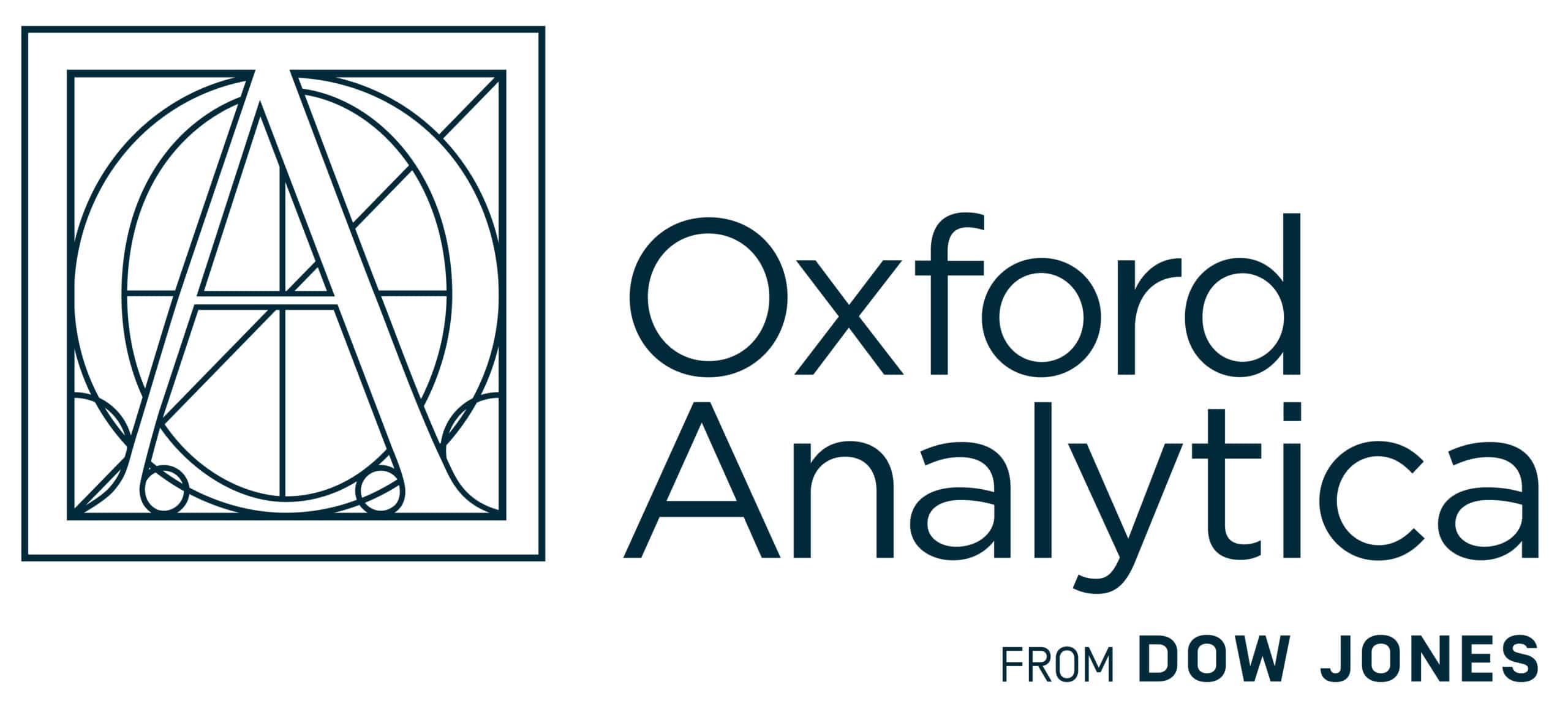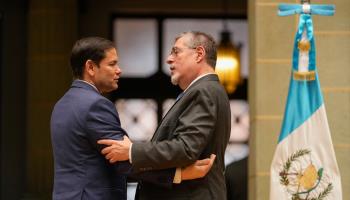The president has struggled to advance his domestic agenda, but foreign policy successes may strengthen his position
President Bernardo Arevalo took office in 2024 amid public anger over years of corruption and democratic backsliding. His ordered, lawful approach toward addressing such problems is arguably a matter of leading by example, but it has not brought quick, tangible results. Although his governance style contrasts markedly with that of US President Donald Trump, strong ties with Washington may prove an asset in pursuing domestic achievements as he navigates the second year of his presidency.
What’s next
Arevalo will seek quiet coexistence with Trump, potentially bolstering US infrastructure investment and support for anti-corruption efforts. Washington’s recent imposition of a 10% ‘reciprocal’ tariff on Guatemalan imports will disrupt exports of commodities such as coffee and bananas, but with the United States unable to meet its own demand for such goods and other exporters facing comparable tariffs, economic damage may be limited. Indeed, strong US-Guatemalan ties could leave Guatemala relatively advantaged vis-a-vis competitors.
Subsidiary Impacts
- US assistance in improving port systems will encourage foreign investment in the medium to long term.
- Guatemala will bolster trade with partners while seeking to have US tariffs removed.
- Robust progress on transparency and democratic consolidation is unlikely until Attorney General Consuelo Porras is replaced.
Analysis
Arevalo was one of the Americas’ most popular leaders when he took office in January 2024, with a CID Gallup poll giving him an approval rating of 78%. However, he has since struggled to meet public expectations of radical change, rapid infrastructure development and a corruption crackdown. A CID Gallup poll conducted in January this year gave him an approval rating of 38%, placing him behind numerous regional counterparts.
38%
Arevalo’s public approval rating in January
Steady but slow progress
The state of Guatemala’s economy looks reasonable under Arevalo, with the IMF forecasting growth of 4.1% in 2025 (slightly up on last year) (see GUATEMALA: Gradual, steady growth will continue – September 19, 2024). Guatemala’s monetary board cut its growth forecast for 2025 to 3.8% in April, citing trade tensions between global powers and growing uncertainty in international markets.
Local demand remains strong on the back of steady growth, a modest end-of-period inflation rate of 4.3%, according to the IMF, and robust remittances. In 2024, remittances were equivalent to nearly 20% of GDP, according to the World Bank, and they were up 16.7% in the first four months of 2025 over the corresponding period last year. The government also managed to raise the minimum wage by 10% in January and looks likely to do so again next year.
Fitch Ratings recently upgraded Guatemala’s outlook to ‘positive’, citing stability and the government’s legislative agenda, which features increased social and infrastructure spending, and a focus on anti-grant reforms.
That social- and infrastructure-focused agenda has seen the renovation of 10,000 public schools, but it has not been without challenges. For example, Arevalo has opted to delay many infrastructure projects until the national contracting system can be made more transparent.
Arevalo recently appointed his third minister of communications, infrastructure and housing, after his first two choices failed to make progress quickly enough on improving efficiency and implementing transparency reforms. This reflects long-standing dysfunction within a ministry which, before Arevalo took office, was regularly hit with corruption scandals. However, it is far from the most high-profile of the corruption challenges facing Arevalo’s government.
Corruption struggles
The National Anti-Corruption Agency (part of Arevalo’s executive branch) has undertaken corruption investigations into various ministries and officials from the government of former President Alejandro Giammattei (2020-24), but all have been stalled by a judiciary that is still largely hostile to wide-ranging graft prosecutions.
Constitutional protections and Arevalo’s apparent desire to be seen as respectful of rules and norms have left him unable to remove Attorney General Consuelo Porras. Arevalo is likely to be able to replace Porras (who is sanctioned by the United States and the EU for undermining democratic institutions and obstructing anti-corruption investigations) only when her constitutionally mandated term ends in May 2026.
The Public Ministry, run by Porras, has asked the courts to consider around a dozen impeachment requests against Arevalo, which have also stalled and are widely viewed by international observers as spurious.
Other Public Ministry efforts, such as its attempt to strip Arevalo’s Semilla party of legal status, appear to be advancing (see GUATEMALA: Arevalo will take office but issues endure – December 5, 2023). Semilla insiders say they may have to jettison the party, which will limit how much influence their 23 members of Guatemala’s 160-seat Congress can wield on various committees. Legal attacks on Semilla seem unlikely to ease, despite there being little evidence of malfeasance.
US ties
Porras and her inner circle have been attempting to bring the US government on-side, but Arevalo’s diplomatic strategy appears to be bearing fruit, at least for now. Instead of pushing against Washington, Arevalo has opted for quiet cooperation:
- During a visit to Guatemala by US Secretary of State Marco Rubio in February, Arevalo agreed to take up to 40% more Guatemalan deportees (see LATIN AMERICA/US: Washington will seek compliance – February 7, 2025).
- Arevalo continues to cooperate with law enforcement programmes to further militarise Guatemala’s borders to reduce irregular migration and drug trafficking.
- Arevalo reiterated to Rubio Guatemala’s commitment to maintaining diplomatic relations with Taiwan over China.
Guatemala has thus avoided diplomatic spats of the sort experienced by other countries. Rubio’s support for Arevalo’s government and anti-corruption agenda has bolstered his standing locally.
Building on Rubio’s visit, Arevalo successfully negotiated an agreement with Washington that includes a portfolio of infrastructure improvement projects, such as port improvements and the construction of an interoceanic railway. These will take years to complete, but will help address Guatemala’s infrastructure bottlenecks and boost long-term growth prospects.
Arevalo appears to have secured US support for infrastructure projects
The US Army Corps of Engineers (ACE) visited Guatemala in February, just after Rubio’s visit, to conduct initial assessments on various aspects of the interoceanic railway project. The ACE has been granted broad powers of planning and procurement to minimise exposure to local systems of graft.
Meanwhile, the Puerto Quetzal expansion project on Guatemala’s Pacific coast is advancing, with the signing of a formal agreement for ACE to undertake construction expected on May 22.
Enduring US backing may be difficult to maintain. Ongoing pressure to accept deportees, reduce migration and cooperate on anti-cartel operations, for example, will strain Guatemala’s security forces, which are having trouble maintaining progress on violent crime (see MEXICO: Chiapas violence looks likely to endure – September 20, 2024). For the moment, however, Arevalo will make the most of friendly US relations.
Outlook
Guatemala’s institutions remain weak and the government faces ongoing resistance in Congress, undermining Arevalo’s capacity to deliver promised infrastructure improvements. This (and Arevalo’s reticence to violate Porras’ constitutional mandate) continues to disappoint the public.
For now, slow and steady progress seems to be keeping Arevalo popular enough to form working congressional alliances, although the coalition that passed the 2025 budget and Guatemala’s first anti-monopoly law last year (see GUATEMALA: New law may not affect existing monopolies – February 19, 2025) is now slightly smaller and more tenuous. Moreover, the coalition remains enough for him to avoid impeachment and prevent the local corporate sector from completely obstructing his agenda, at least for now.
Corporate players were broadly frustrated by Arevalo’s passage of the anti-monopoly law and his commitment to raising the minimum wage. However, they recognise that constructive US relations and positive reports from ratings agencies point to gradual improvements in the business environment.
Guatemala will observe moves by export competitors to negotiate US deals that reduce their tariffs, looking to keep up with any progress made on that front to prevent loss of market share.
If Arevalo can maintain positive US relations, he will be increasingly likely to succeed in key areas: preventing corruption from impeding education, healthcare and infrastructure gains while avoiding economic shocks and a possible US remittance tax.



